- Home
- Herman Melville
Herman Melville- Complete Poems Page 11
Herman Melville- Complete Poems Read online
Page 11
By him (for Mosby’s band a sight)
A sister-rebel sat, her veil held tight.
“I picked them up,” the Corporal said,
“Crunching their way over stick and root,
Through yonder wood. The man here—Cuff—
Says they are going to Leesburg town.”
The Colonel’s eye took in the group;
The veiled one’s hand he spied—enough!
Not Mosby’s. Spite the gown’s poor stuff,
Off went his hat: “Lady, fear not;
We soldiers do what we deplore—
I must detain you till we march.”
The stranger nodded. Nettled now,
He grew politer than before:—
“’Tis Mosby’s fault, this halt and search:”
The lady stiffened in her starch.
“My duty, madam, bids me now
Ask what may seem a little rude.
Pardon—that veil—withdraw it, please
(Corporal! make every man fall back);
Pray, now, I do but what I should;
Bethink you, ’tis in masks like these
That Mosby haunts the villages.”
Slowly the stranger drew her veil,
And looked the Soldier in the eye—
A glance of mingled foul and fair;
Sad patience in a proud disdain,
And more than quietude. A sigh
She heaved, as if all unaware,
And far seemed Mosby from her care.
She came from Yewton Place, her home,
So ravaged by the war’s wild play—
Campings, and foragings, and fires—
That now she sought an aunt’s abode.
Her kinsmen? In Lee’s army, they.
The black? A servant, late her sire’s.
And Mosby? Vainly he inquires.
He gazed, and sad she met his eye;
“In the wood yonder were you lost?”
No; at the forks they left the road
Because of hoof-prints (thick they were—
Thick as the words in notes thrice crossed),
And fearful, made that episode.
In fear of Mosby? None she showed.
Her poor attire again he scanned:
“Lady, once more; I grieve to jar
On all sweet usage, but must plead
To have what peeps there from your dress;
That letter—’tis justly prize of war.”
She started—gave it—she must need.
“’Tis not from Mosby? May I read?”
And straight such matter he perused
That with the Guide he went apart.
The Hospital Steward’s turn began:
“Must squeeze this darkey; every tap
Of knowledge we are bound to start.”
“Garry,” she said, “tell all you can
Of Colonel Mosby—that brave man.”
“Dun know much, sare; and missis here
Know less dan me. But dis I know—”
“Well, what?” “I dun know what I know.”
“A knowing answer!” The hump-back coughed,
Rubbing his yellowish wool like tow.
“Come—Mosby—tell!” “O dun look so!
My gal nursed missis—let we go.”
“Go where?” demanded Captain Cloud;
“Back into bondage? Man, you’re free!”
“Well, let we free!” The Captain’s brow
Lowered; the Colonel came—had heard:
“Pooh! pooh! his simple heart I see—
A faithful servant.—Lady” (a bow),
“Mosby’s abroad—with us you’ll go.
“Guard! look to your prisoners; back to camp!
The man in the grass—can he mount and away?
Why, how he groans!” “Bad inward bruise—
Might lug him along in the ambulance.”
“Coals to Newcastle! let him stay.
Boots and saddles!—our pains we lose,
Nor care I if Mosby hear the news!”
But word was sent to a house at hand,
And a flask was left by the hurt one’s side.
They seized in that same house a man,
Neutral by day, by night a foe—
So charged his neighbor late, the Guide.
A grudge? Hate will do what it can;
Along he went for a Mosby-man.
No secrets now; the bugle calls;
The open road they take, nor shun
The hill; retrace the weary way.
But one there was who whispered low,
“This is a feint—we’ll back anon;
Young Hair-Brains don’t retreat, they say;
A brush with Mosby is the play!”
They rode till eve. Then on a farm
That lay along a hill-side green,
Bivouacked. Fires were made, and then
Coffee was boiled; a cow was coaxed
And killed, and savory roasts were seen;
And under the lee of a cattle-pen
The guard supped freely with Mosby’s men.
The ball was bandied to and fro;
Hits were given and hits were met:
“Chickamauga, Feds—take off your hat!”
“But the Fight in the Clouds repaid you, Rebs!”
“Forgotten about Manassas yet?”
Chatting and chaffing, and tit for tat,
Mosby’s clan with the troopers sat.
“Here comes the moon!” a captive cried;
“A song! what say? Archy, my lad!”
Hailing the still one of the clan
(A boyish face with girlish hair),
“Give us that thing poor Pansy made
Last year.” He brightened, and began;
And this was the song of Mosby’s man:
Spring is come; she shows her pass—
Wild violets cool!
South of woods a small close grass—
A vernal wool!
Leaves are a’bud on the sassafras—
They’ll soon be full:
Blessings on the friendly screen—
I’m for the South! says the leafage green.
Robins! fly, and take your fill
Of out-of-doors—
Garden, orchard, meadow, hill,
Barns and bowers;
Take your fill, and have your will—
Virginia’s yours!
But, bluebirds! keep away, and fear
The ambuscade in bushes here.
“A green song that,” a sergeant said;
“But where’s poor Pansy? gone, I fear.”
“Ay, mustered out at Ashby’s Gap.”
“I see; now for a live man’s song;
Ditty for ditty—prepare to cheer.
My bluebirds, you can fling a cap!
You barehead Mosby-boys—why—clap!”
Nine Blue-coats went a-nutting
Slyly in Tennessee—
Not for chestnuts—better than that—
Hush, you bumble-bee!
Nutting, nutting—
All through the year there’s nutting!
A tree they spied so yellow,
Rustling in motion queer;
In they fired, and down they dropped—
Butternuts, my dear!
Nutting, nutting—
Who’ll ’list to go a-nutting?
Ah! why should good fellows foemen be?
And who would dream that foes they were—
Larking and singing so friendly then—
A family likeness in every face.
But Captain Cloud made sour demur:
“Guard! keep your prisoners in the pen,
And let none talk with Mosby’s men.”
That captain was a valorous one
(No irony, but honest truth),
Yet down from his brain cold drops distilled,
Making stalactites in his heart—
A conscientious soul, forsooth;
And with a formal hate was filled
Of Mosby’s band; and some he’d killed.
Meantime the lady rueful sat,
Watching the flicker of a fire
Where the Colonel played the outdoor host
In brave old hall of ancient Night.
But ever the dame grew shyer and shyer,
Seeming with private grief engrossed—
Grief far from Mosby, housed or lost.
The ruddy embers showed her pale.
The Soldier did his best devoir:
“Some coffee?—no?—a cracker?—one?”
Cared for her servant—sought to cheer:
“I know, I know—a cruel war!
But wait—even Mosby ’ll eat his bun;
The Old Hearth—back to it anon!”
But cordial words no balm could bring;
She sighed, and kept her inward chafe,
And seemed to hate the voice of glee—
Joyless and tearless. Soon he called
An escort: “See this lady safe
In yonder house.—Madam, you’re free.
And now for Mosby.—Guide! with me.”
(“A night-ride, eh?”) “Tighten your girths!
But, buglers! not a note from you.
Fling more rails on the fires—a blaze!”
(“Sergeant, a feint—I told you so—
Toward Aldie again. Bivouac, adieu!”)
After the cheery flames they gaze,
Then back for Mosby through the maze.
The moon looked through the trees, and tipped
The scabbards with her elfin beam;
The Leader backward cast his glance,
Proud of the cavalcade that came—
A hundred horses, bay and cream:
“Major! look how the lads advance—
Mosby we’ll have in the ambulance!”
“No doubt, no doubt:—was that a hare?—
First catch, then cook; and cook him brown.”
“Trust me to catch,” the other cried—
“The lady’s letter!—a dance, man, dance
This night is given in Leesburg town!”
“He’ll be there too!” wheezed out the Guide;
“That Mosby loves a dance and ride!”
“The lady, ah!—the lady’s letter—
A lady, then, is in the case,”
Muttered the Major. “Ay, her aunt
Writes her to come by Friday eve
(To-night), for people of the place,
At Mosby’s last fight jubilant,
A party give, though table-cheer be scant.”
The Major hemmed. “Then this night-ride
We owe to her?—One lighted house
In a town else dark.—The moths, begar!
Are not quite yet all dead!” “How? how?”
“A mute, meek, mournful little mouse!—
Mosby has wiles which subtle are—
But woman’s wiles in wiles of war!”
“Tut, Major! by what craft or guile—”
“Can’t tell! but he’ll be found in wait.
Softly we enter, say, the town—
Good! pickets post, and all so sure—
When—crack! the rifles from every gate,
The Gray-backs fire—dash up and down—
Each alley unto Mosby known!”
“Now, Major, now—you take dark views
Of a moonlight night.” “Well, well, we’ll see,”
And smoked as if each whiff were gain.
The other mused; then sudden asked,
“What would you do in grand decree?”
“I’d beat, if I could, Lee’s armies—then
Send constables after Mosby’s men.”
“Ay! ay!—you’re odd.” The moon sailed up;
On through the shadowy land they went.
“Names must be made and printed be!”
Hummed the blithe Colonel. “Doc, your flask!
Major, I drink to your good content.
My pipe is out—enough for me!
One’s buttons shine—does Mosby see?
“But what comes here?” A man from the front
Reported a tree athwart the road.
“Go round it, then; no time to bide;
All right—go on! Were one to stay
For each distrust of a nervous mood,
Long miles we’d make in this our ride
Through Mosby-land.—On! with the Guide!”
Then sportful to the Surgeon turned:
“Green sashes hardly serve by night!”
“Nor bullets nor bottles,” the Major sighed,
“Against these moccasin-snakes—such foes
As seldom come to solid fight:
They kill and vanish; through grass they glide;
Devil take Mosby!”—his horse here shied.
“Hold! look—the tree, like a dragged balloon;
A globe of leaves—some trickery here;
My nag is right—best now be shy.”
A movement was made, a hubbub and snarl;
Little was plain—they blindly steer.
The Pleiads, as from ambush sly,
Peep out—Mosby’s men in the sky!
As restive they turn, how sore they feel,
And cross, and sleepy, and full of spleen,
And curse the war. “Fools, North and South!”
Said one right out. “O for a bed!
O now to drop in this woodland green!”
He drops as the syllables leave his mouth—
Mosby speaks from the undergrowth—
Speaks in a volley! out jets the flame!
Men fall from their saddles like plums from trees;
Horses take fright, reins tangle and bind;
“Steady—dismount—form—and into the wood!”
They go, but find what scarce can please:
Their steeds have been tied in the field behind,
And Mosby’s men are off like the wind.
Sound the recall! vain to pursue—
The enemy scatters in wilds he knows,
To reunite in his own good time;
And, to follow, they need divide—
To come lone and lost on crouching foes:
Maple and hemlock, beech and lime,
Are Mosby’s confederates, share the crime.
“Major,” burst in a bugler small,
“The fellow we left in Loudon grass—
Sir Slyboots with the inward bruise,
His voice I heard—the very same—
Some watchword in the ambush pass;
Ay, sir, we had him in his shoes—
We caught him—Mosby—but to lose!”
“Go, go!—these saddle-dreamers! Well,
And here’s another.—Cool, sir, cool!”
“Major, I saw them mount and sweep,
And one was humped, or I mistake,
And in the skurry dropped his wool.”
“A wig! go fetch it:—the lads need sleep;
They’ll next see Mosby in a sheep!
“Come, come, fall back! reform your ranks—
All’s jackstraws
here! Where’s Captain Morn?—
We’ve parted like boats in a raging tide!
But stay—the Colonel—did he charge?
And comes he there? ’Tis streak of dawn;
Mosby is off, the woods are wide—
Hist! there’s a groan—this crazy ride!”
As they searched for the fallen, the dawn grew chill;
They lay in the dew: “Ah! hurt much, Mink?
And—yes—the Colonel!” Dead! but so calm
That death seemed nothing—even death,
The thing we deem every thing heart can think;
Amid wilding roses that shed their balm,
Careless of Mosby he lay—in a charm!
The Major took him by the hand—
Into the friendly clasp it bled
(A ball through heart and hand he rued):
“Good-by!” and gazed with humid glance;
Then in a hollow revery said,
“The weakest thing is lustihood;
But Mosby”—and he checked his mood.
“Where’s the advance?—cut off, by heaven!
Come, Surgeon, how with your wounded there?”
“The ambulance will carry all.”
“Well, get them in; we go to camp.
Seven prisoners gone? for the rest have care.”
Then to himself, “This grief is gall;
That Mosby!—I’ll cast a silver ball!”
“Ho!” turning—“Captain Cloud, you mind
The place where the escort went—so shady?
Go, search every closet low and high,
And barn, and bin, and hidden bower—
Every covert—find that lady!
And yet I may misjudge her—ay,
Women (like Mosby) mystify.
“We’ll see. Ay, Captain, go—with speed!
Surround and search; each living thing
Secure; that done, await us where
We last turned off. Stay! fire the cage
If the birds be flown.” By the cross-road spring
The bands rejoined; no words; the glare
Told all. Had Mosby plotted there?
The weary troop that wended now—

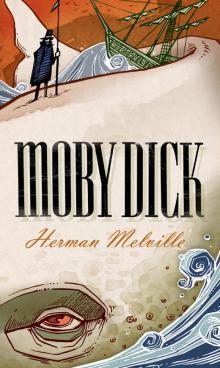 Moby Dick; Or, The Whale
Moby Dick; Or, The Whale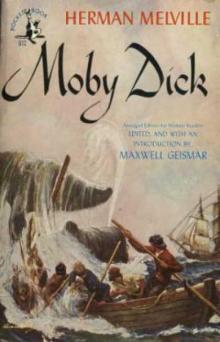 Moby Dick
Moby Dick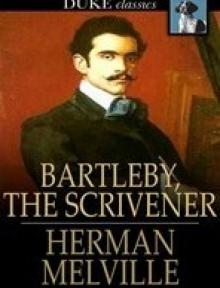 Benito Cereno and Bartleby the Scrivener
Benito Cereno and Bartleby the Scrivener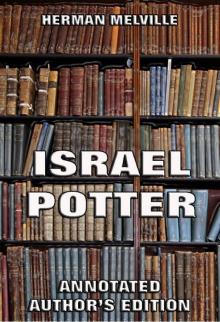 Israel Potter: His Fifty Years of Exile (Annotated Edition)
Israel Potter: His Fifty Years of Exile (Annotated Edition)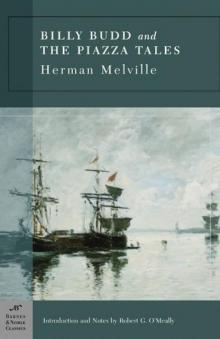 Billy Budd and the Piazza Tales
Billy Budd and the Piazza Tales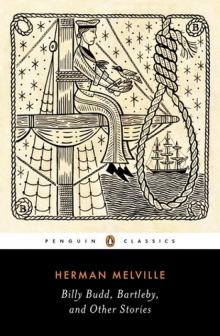 Billy Budd, Bartleby, and Other Stories
Billy Budd, Bartleby, and Other Stories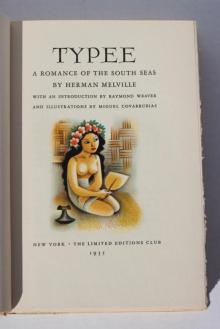 Typee: A Romance of the South Seas
Typee: A Romance of the South Seas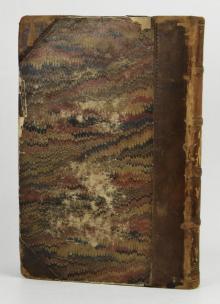 Omoo: Adventures in the South Seas
Omoo: Adventures in the South Seas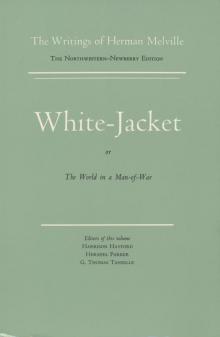 White Jacket; Or, The World on a Man-of-War
White Jacket; Or, The World on a Man-of-War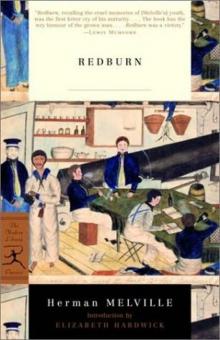 Redburn. His First Voyage
Redburn. His First Voyage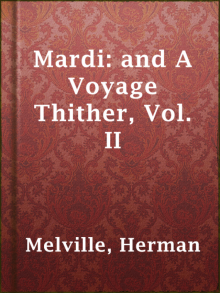 Mardi: and A Voyage Thither, Vol. II
Mardi: and A Voyage Thither, Vol. II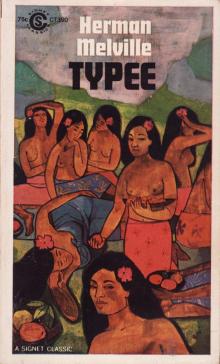 Typee
Typee The Paradise of Bachelors and the Tartarus of Maids
The Paradise of Bachelors and the Tartarus of Maids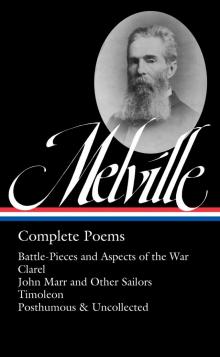 Herman Melville- Complete Poems
Herman Melville- Complete Poems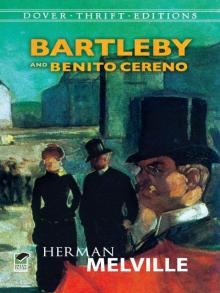 Bartleby and Benito Cereno
Bartleby and Benito Cereno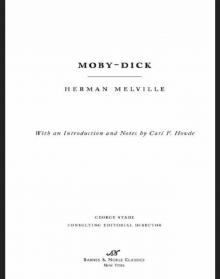 Moby-Dick (Barnes & Noble Classics Series)
Moby-Dick (Barnes & Noble Classics Series)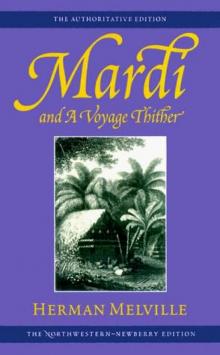 Mardi and a Voyage Thither
Mardi and a Voyage Thither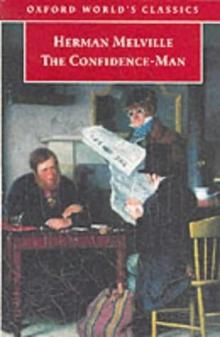 The Confidence-Man
The Confidence-Man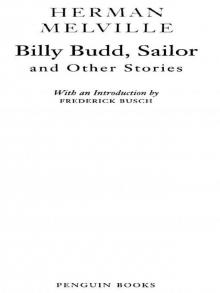 Billy Budd and Other Stories
Billy Budd and Other Stories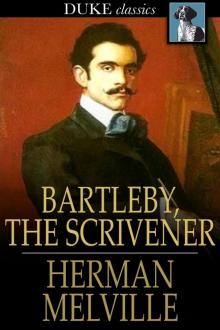 Bartleby the Scrivener
Bartleby the Scrivener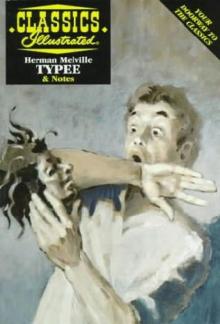 Typee: A Romance of the South Sea
Typee: A Romance of the South Sea I and My Chimney
I and My Chimney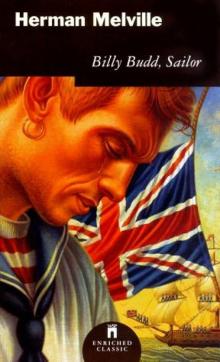 Billy Budd
Billy Budd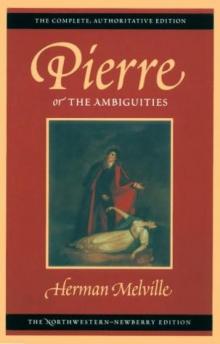 Pierre, Or the Ambiguities
Pierre, Or the Ambiguities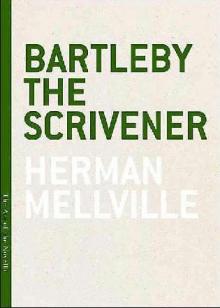 Bartleby, The Scrivener A Story of Wall-Street
Bartleby, The Scrivener A Story of Wall-Street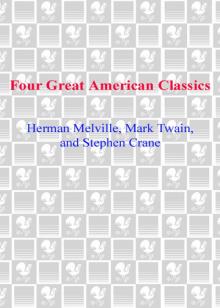 Four Great American Classics
Four Great American Classics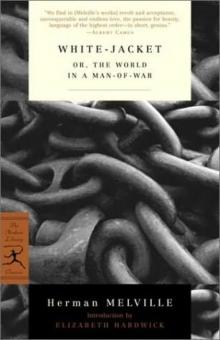 White Jacket or, The World on a Man-of-War
White Jacket or, The World on a Man-of-War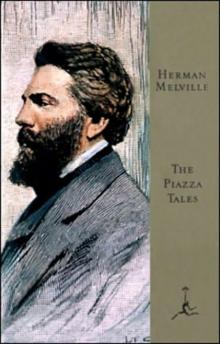 The Piazza Tales
The Piazza Tales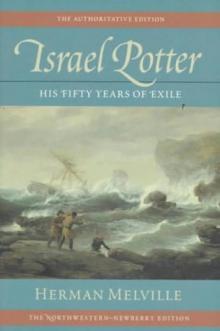 Israel Potter. Fifty Years of Exile
Israel Potter. Fifty Years of Exile